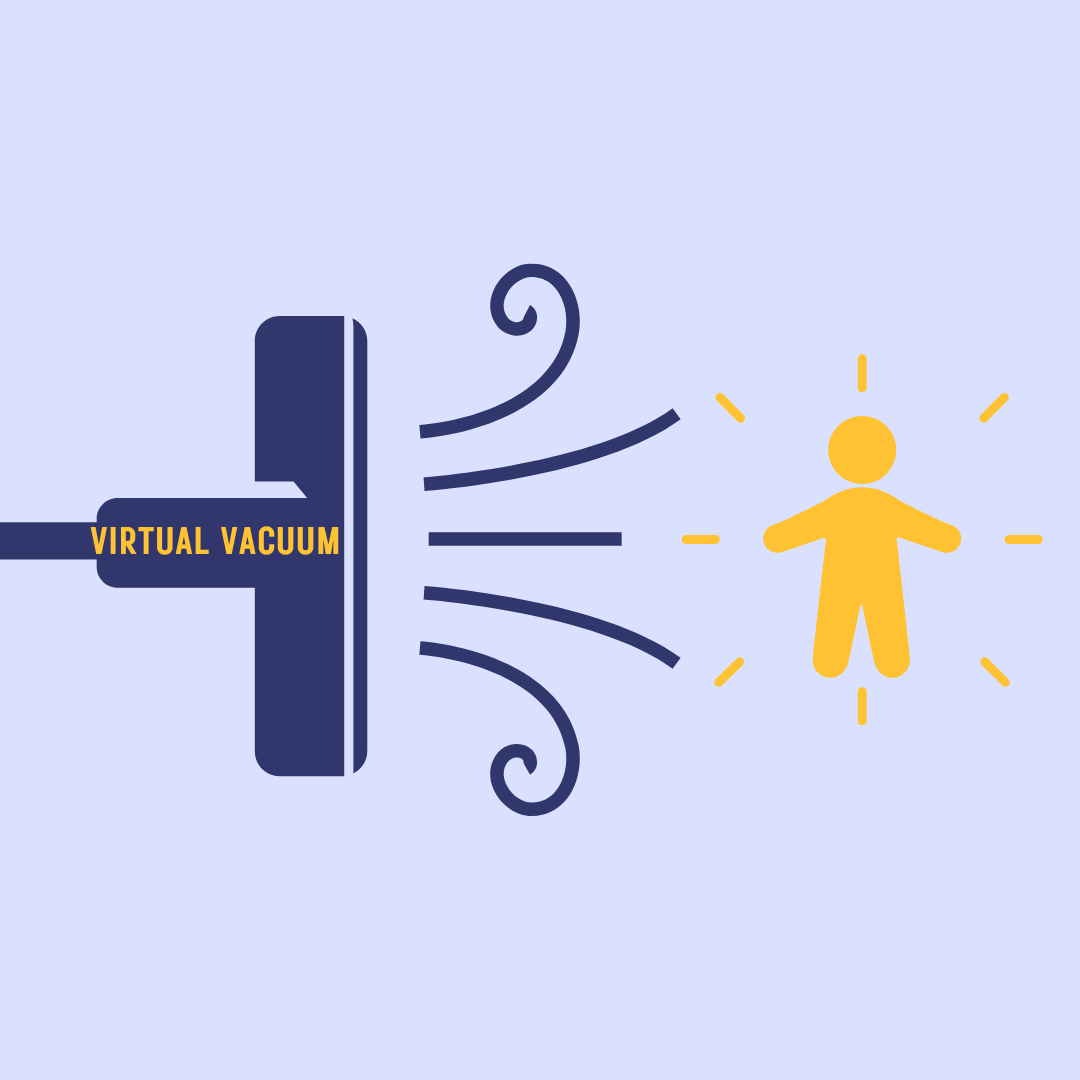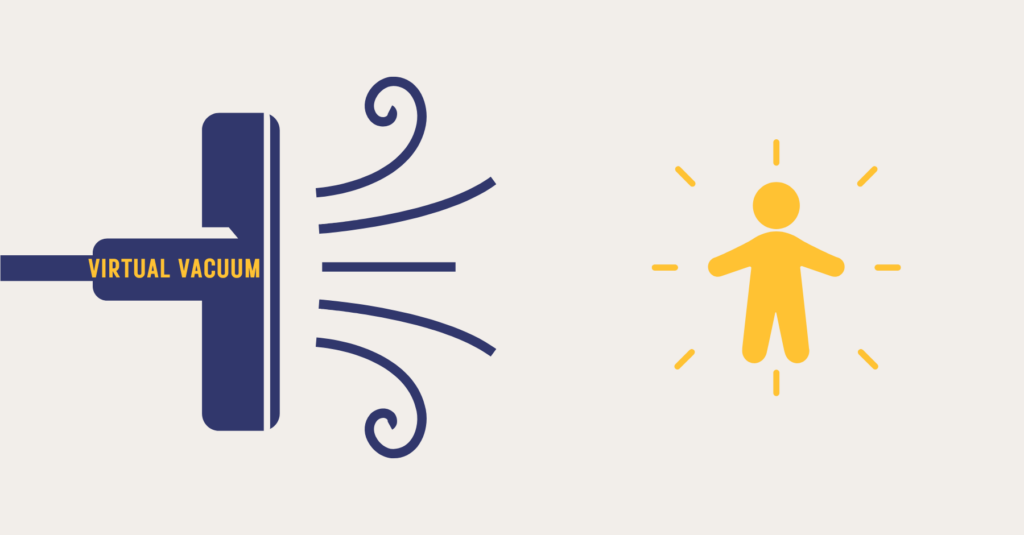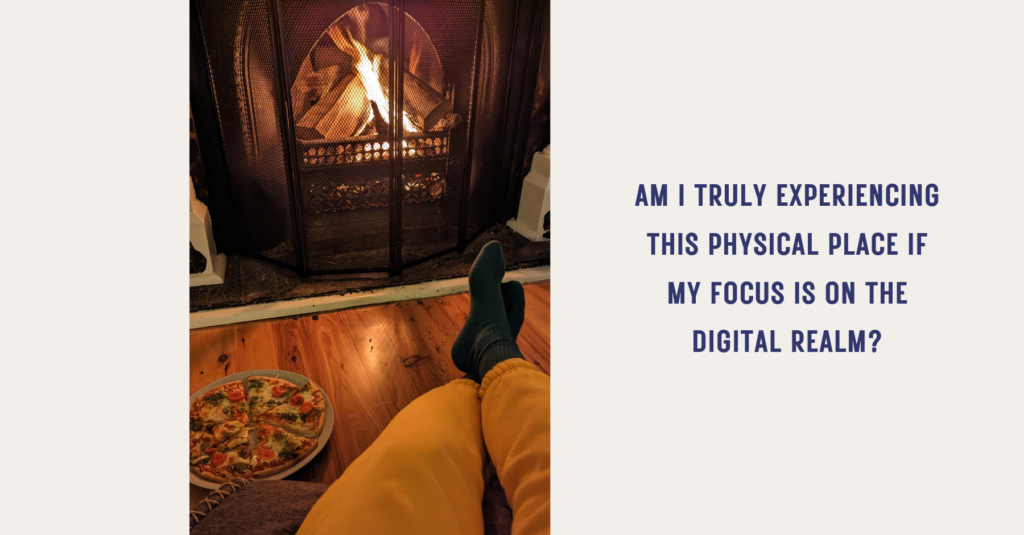
The Virtual Vacuum
Moments of Solitude You know that moment when you step outside for the first time in the morning, and it just suddenly strikes you what a beautiful day it is? Facing the sun, you close your eyes, inhale deeply, and slowly exhale – ahhh what a beautiful day! You decide to keep your eyes closed […]
Moments of Solitude
You know that moment when you step outside for the first time in the morning, and it just suddenly strikes you what a beautiful day it is? Facing the sun, you close your eyes, inhale deeply, and slowly exhale – ahhh what a beautiful day! You decide to keep your eyes closed for just a few more seconds. You notice the beautiful singing of the birds, your face warming up and your heartbeat slightly changing to a slower, more relaxing, rhythm. How good would it be to stay here like this for just a little longer? But the busyness of the day kicks in again – we have places to go and people to meet!
Those types of moments of solitude happen few and far between these days. Not because the sun isn’t shining, or the birds aren’t singing, or because we just don’t want these moments to take place. Rather, there is another dimension altogether that is pulling us… drawing us in with a constant and steady pull…
The Digital Age
In the digital age, that is the world we live in today, everything we encounter is vying for our attention. We are almost always occupied. Even the little moments of solitude, where we’re waiting for the bus, a friend, or in line at the cafe, have been replaced by digital interactions. Research shows that, on average, we check our phone 150 times a day (1), and on average we spend around 7 hours a day engaged in digital activities (2). For the younger generation this digital infiltration is even more prominent, with Gen Z spending on average 6 hours a day on just their phones, not taking into account other devices (3).
The way we experience the world has become confined by our screens, diminishing our daily experiences down to a tiny rectangle view – e.a. the screens of our phones / laptops / tablets / TVs, etc.
Each time we engage with these rectangles, our awareness shifts from being conscious in the physical place, to being more absorbed into virtual space. It’s almost as if we’re pulled and teleported into another dimension with our awareness of time and place relegated to the background.
The Virtual Vacuum
I call this digital pull the “Virtual Vacuum,” relentlessly pulling at anything in its wake. This inescapable attraction is akin to a vortex. Just as a physical vacuum cleaner draws in everything around it, the virtual vacuum pulls our focus away from our immediate environment. Unlike a vortex, which indiscriminately draws everything in, a vacuum cleaner’s pull can be adjusted or even reversed (though the latter is not generally recommended!). I believe we need to stabilise and balance this virtual pull.
In fact, I think we all agree technology in general can be a great tool that provides many benefits in both work & life. Where I think the balance is out of whack, is that many of us feel this urge to jump into the digital realm from the moment we wake up in the morning, to the time we go to bed at night.

I don’t believe this is healthy, nor do I think it benefits knowledge work. My hypothesis is that, for knowledge workers to thrive in the digital age, we need to draw inspiration from the real world to nurture our human-originated intelligence and the power of our perspective and ability to take in reality and amplify it in meaningful and creative expression. Currently, we spend so much time in the digital realm, driven by algorithms and black boxes whose biases we don’t fully understand, that we are losing touch with our unique human insights. We should be in the driver’s seat, guiding our actions in the virtual world – not the other way around! Also, how are we going to reflect and ponder on the relevance and correctness of AI’s output, if our minds are constantly engaged and occupied with digital activities? Do we still know how to practise deep thinking?
I believe there needs to be a balance between the time we spend online and offline to continue developing our uniquely human abilities – such as imagination, emotional intelligence, and nuanced understanding of contexts. These human abilities are becoming increasingly important in the digital age and as AI continues to advance. Could environments that ignite a strong sense of place, pull us out of the virtual vacuum, introducing a better chance for a healthier balance?
The Virtual Vacuum & Our Experience of Place
As I’m writing this newsletter, I’m experiencing the constant pull of the virtual vacuum myself firsthand. I’m currently seated in one of my favourite spots in our house, on a comfy chair, with the fire crackling and music softly playing in the background. Yet, despite the physical comfort and aesthetic appeal of this place (and the nice-smelling pizza!), my primary focus is on the digital realm – the computer screen, the words I’m typing, and the research I’m conducting online.

This dual awareness raises an intriguing question: Am I truly experiencing this physical place if my focus is on the digital realm? On one hand, my senses are still registering the warmth of the fire, the softness of the chair, and the ambient sounds of the room. These sensory inputs contribute to my overall comfort and possibly enhance my concentration on the task at hand. On the other hand, my conscious attention is largely consumed by the digital space, potentially diminishing my full awareness and appreciation of the physical environment.
So, while we might not be fully conscious of our physical environment when focused on the digital realm, we can still benefit from the physical environment through our senses in the background. The question is, can this virtual engagement still create a sense of place? And could we, by creating topophilia inducing places, rebalance the virtual pull?
100-Day Virtual Vacuum Cleanse
I’m curious to find that out! As a human geographer, I love undertaking experiments and research projects, and this presents a great opportunity to do just that. I’m thinking of commencing a virtual vacuum cleanse. This cleanse is not about disconnecting from all devices. As I mentioned before, the pull doesn’t need to be reversed; it needs to be rebalanced. Besides, I wouldn’t be able to do much of my job, which I love, without the use of technology!
The purpose of this experiment is to test the hypothesis that rebalancing the time we spend online versus offline will enhance our uniquely human abilities and strengthen our sense of place. To do this, I’ve decided to embark on a 100-day Virtual Vacuum Cleanse, starting on the 1st of August ’24, right after returning from my world speaking tour in July.
At some stage in the coming weeks, I’ll be sharing more about what the virtual vacuum cleanse will entail. To give you an idea, it will involve reducing meaningless virtual time (e.g., social media, watching series) and introducing more meaningful spatial time.
I’m a little nervous about this experiment. Why? I tried doing exactly this earlier in the year, and I failed miserably. I caved after just 14 days! The moment I failed was after an incredibly busy workweek, and I felt like I just ‘deserved’ TV time, knowing full well that many non-virtual activities would have actually made me feel better than slouching on the couch watching a series.
The virtual vacuum is relentless in its pull, and quite frankly, has us in its grip. I’m keen to see if, by reducing time in the virtual world, my sense of place will be enhanced with more meaningful moments, fueling inspiration for (and enhancing) the skills needed in the digital age.
I’m keen to know, how do you manage this very real virtual pull?
Article References:
- Cell Phone Usage Statistics: Mornings Are for Notifications, Review.org, 2023 (link)
- Alarming Average Screen Time Statistics, Exploding Topics, 2024 (link)
- Black Mirror or Black Hole? American Phone Screen Time Statistics, Harmony Healthcare IT, 2024 (link)
Nov 23, 2024
Tica Masuku
|
[🎤Are you looking for a keynote speaker for your next event, company off-site or global summit? I'm currently organising my international speaking calendar for 2025. Please get in touch to discuss the possibilities tica.m@spaceful.com.au]
[💡Would you like to know how I can help you or your organisation apply a human geography informed strategy to your workplace? I'm the Director of Workplace Strategy at Spaceful. We assist organisations design and develop bespoke and evidence-based workplace strategy solutions. You can email me at tica.m@spaceful.com.au]
You'll get...
Thank You for Subscribing!
Website designed by Creative Vibes
2025 © Copyright Tica Masuku